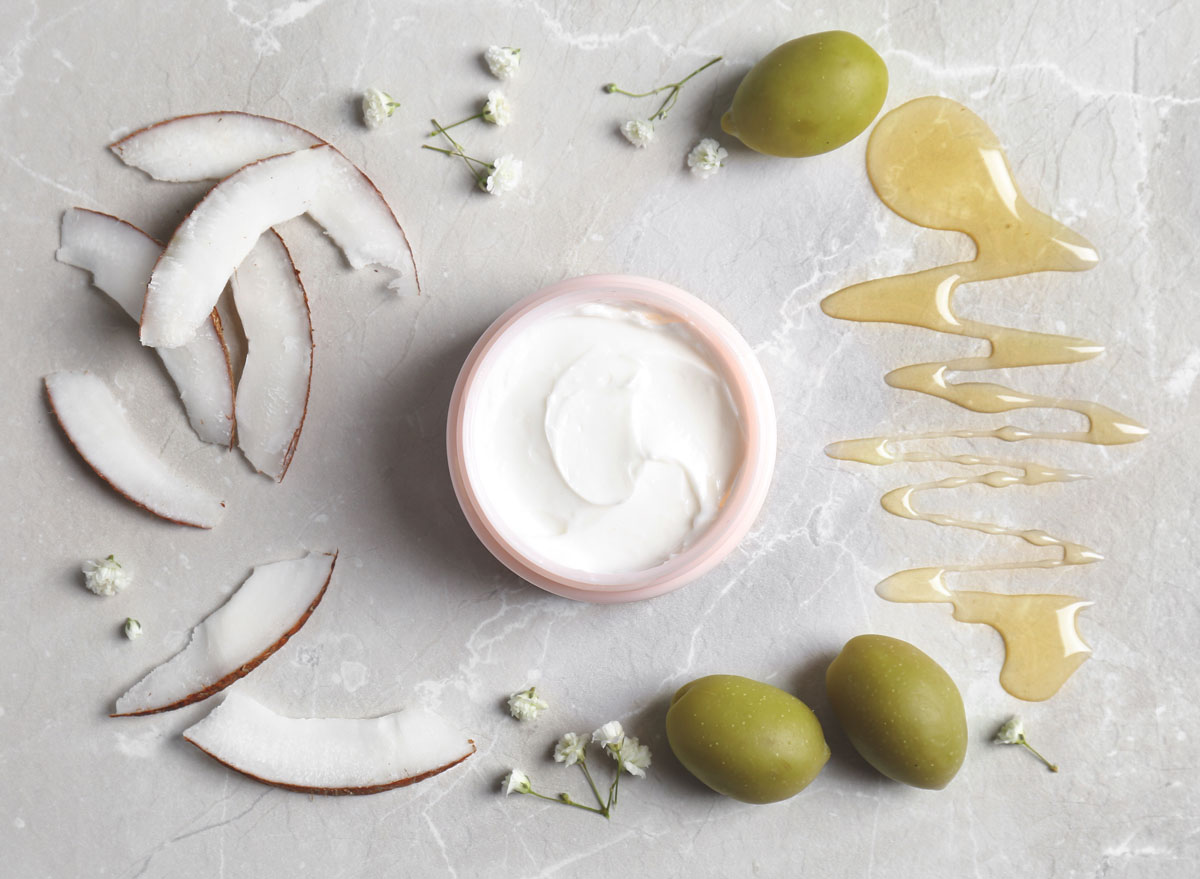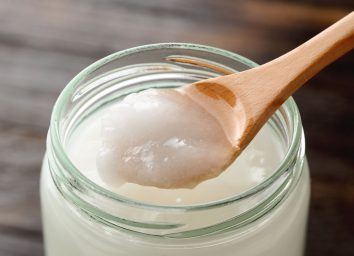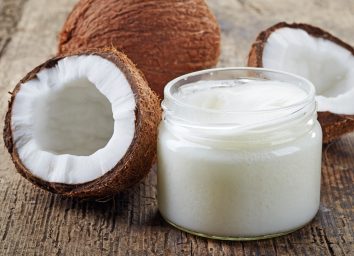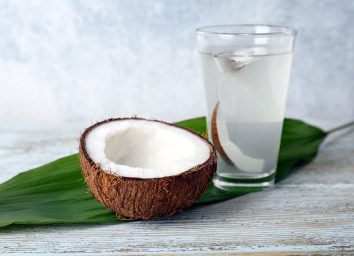Coconut Oil vs. Olive Oil: Which is Healthier?

Fats are a macronutrient that has received conflicting media coverage over the years. In the 90s, the trend was low-fat everything as research at the time connected reducing fat in our diet to weight loss and health benefits.
However, in a complete 180, science has recently shown us there are many benefits to including fat in our diet, including increasing satiety, providing anti-inflammatory properties, facilitating nutrient absorption, and building healthy cells. Fat is just as essential for our health as carbohydrates, protein, vitamins, and minerals.
Now that we have established the importance of a well-balanced diet that includes adequate amounts of fat, the conversation has turned to which oil is best for us to cook with.
Olive oil has well been established as a good-for-us fat, but how does it match up against coconut oil with its recent rise in popularity?
What to consider when determining how healthy an oil is:
When comparing oils it is important to take several factors into account:
- What is the breakdown of unsaturated fats versus saturated? Ideally, we are looking for a higher percentage of fat in the oil to come from unsaturated sources that can lower blood cholesterol, improve cardiovascular health, and provide anti-cancer benefits.
- Will this oil be used in high heat cooking or more moderate temperate food preparations? All oils have different temperatures to which they can be heated before they reach their smoke point and flavor is impaired, nutrients are lost and harmful free radicals are produced.
- What additional health properties may be present?
How healthy is olive oil?
Olive oil is about 86 percent unsaturated fats and 14 percent saturated fats. Saturated fat is the fat that has traditionally been thought to be negative for our health. The higher the amount of unsaturated fat in a food, the more health benefits it will likely have, making olive oil a healthy fat choice.
Olive oil is largely made up of a combination of unsaturated fats—those fats known for providing benefit to our health. One of those types of unsaturated fat, a monounsaturated fat called oleic acid, may have anti-cancer effects, according to a Current Pharmaceutical Biotechnology study.
Polyunsaturated fat, another one of the sources of unsaturated fat in olive oil, is made up of essential fats Omega-3 and Omega-6. These fats are known as “essential” because we are required to get them from our diet as our body cannot make them on its own. Omega-3 fats are protective against heart disease and are very important for brain health and nervous system development. Of the fats found in olive oil, about 1% are from Omega-3 and 9% are Omega-6.
All oils, including olive and coconut oil, are dense in calories, averaging about 120 calories per tablespoon. Although fats are known to be more satiating than carbohydrates, liquid sources of fat will not be as filling as their solid counterparts, like whole olives.
How to use olive oil in your diet:
Olive oil works wonderfully as a dip, as a fat in salad dressing, and can be used to sauté food at low to medium heat; however, it is not ideal for cooking or frying at higher temperatures.
How healthy is coconut oil?
Coconut oil has a very different nutrient profile than olive oil. In fact, 92 percent of its fat comes from saturated sources. Many years of research taught us these saturated fats are more likely to negatively impact our cardiovascular health; however, recent studies are not finding that same outcome. Instead, new research shows that saturated fat may not be as bad for us as we previously thought.
In fact, compounds in coconut associated with this saturated fat are known to be antimicrobial and can protect against bacteria and pathogens.
Although coconut oil may not share many of the same benefits of olive oil rich in polyunsaturated fat, it does have benefits of its own as an antimicrobial, and there is even evidence to support it may increase calorie burn.
How to use coconut oil in your diet:
Coconut oil is better used in high heat cooking as it has a higher smoke point than olive oil. Because it is solid at room temperature due to its high saturated fat content, coconut oil is not an ideal ingredient in cold or room temperature recipes, like dressing or marinades.
Coconut oil vs. olive oil: which is healthier?
Both coconut and olive oils provide nutritional benefit with few downsides. Regardless of the type of oil you use most often, it is important to make sure you are consuming a total amount of fat that is in balance with other nutrients.
The takeaway? Eat a variety of fats in moderation.
The 2015–2020 Dietary Guidelines for Americans recommend that we consume no more than 10 percent of our total calories from saturated fat, and our total fat consumption should not make up more than 35 percent of our total calories.
Practicing moderation and frequently using a variety of ingredients that provide health benefits is an ideal way to approach nutrition and making food work for you.








